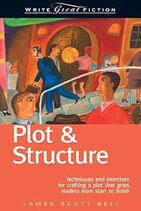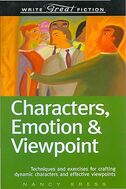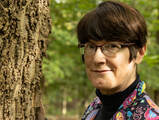| Plot & Structure is a solid writing guide from thriller writer James Scott Bell. He says, “Plot is about elements, those things that go into the mix of making a good story even better. Structure is about timing--where in the mix those elements go.” According to Bell, “Without a character facing trouble that is understandable to the reader, you don’t have a plot at all.” “Solid plots have one and only one dominant objective for the Lead character.” This objective [or goal] must be “absolutely crucial” to her happiness and well being. |
Possible story openings include showing the lead character in action, expressing raw emotion [in context], or revealing a strong attitude. Initial reader bonding with the main character can be enhanced through showing the character’s humanity, putting her in jeopardy or facing long odds, and revealing inner conflict.
Bell advises:
- “Start your story from the first sentence.
- “Beginnings are always about the who of the story…begin by connecting the reader to the Lead as quickly as possible.
- “From a structural standpoint, the initial disturbance [inciting incident] creates reader interest. It is an implicit promise of an interesting story yet to come.
- “Give readers a feeling of motion, of something happening or about to happen. Give them this feeling from the very start.
| Intensity Outline: One of the most helpful techniques in this book was ranking scenes in the manuscript by their tension level. He says, “As a general rule you want the trouble to increase as the story moves along.” When revising, he suggests eliminating the scenes with the lowest intensity. Bell gives concrete tips for ramping up the tension, based on threatening the lead character physically, professionally, or psychologically. |
He says, “If you can create a character worth following and a problem that must be solved--and then find a way to raise the stakes even higher--you’re going to have the essential elements of a page-turner."
- “No two characters should sound exactly alike. And…the words they use should tell us something about who they are.”
- “Think of dialogue as weapons used in the plot. Plot is about confrontation…So verbal weapons are naturally going to be employed by characters trying to outmaneuver each other.”
| Knockout Endings: Bell provides tools for crafting an ending that is both satisfying and surprising. He says, “You want to leave your readers with a last page that makes the ending more than satisfying. You want it to be memorable, to stay with readers after the book is closed.” The book also covers how to evaluate story ideas, practical methods for constructing compelling scenes, a comprehensive overview of revision, and a guide to troubleshooting plot problems. |
Bell states, “passion is the most important [element] for your writer’s soul and, almost always, your ultimate success."
“If you are passionate about your [story] idea and reasonably certain about the potential it has to reach readers, trim away anything that is not in line with that potential."
In other words, write what you love!













 RSS Feed
RSS Feed